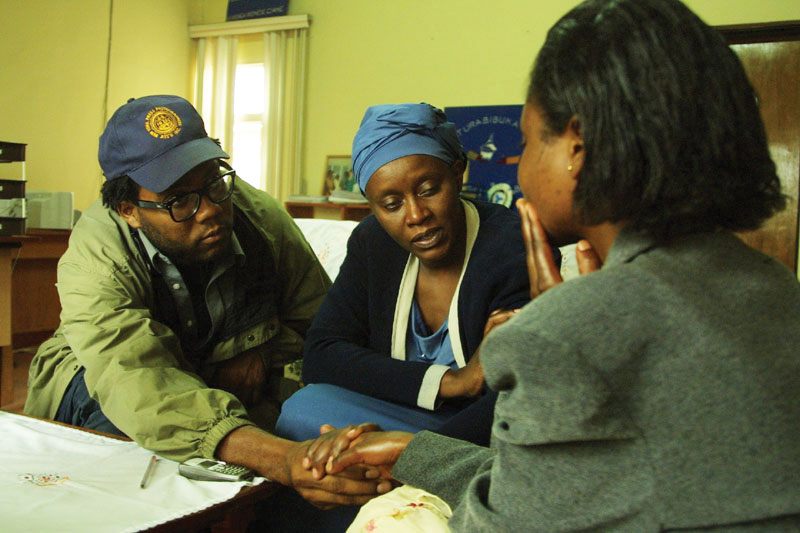March spotlights women’s achievements, struggles, hopes
For the first time in the event’s long history, the keynote speaker for the 2015 Women’s History Month is … a guy.
But it’s no accident that IVCC has tapped journalist and human rights activist Jimmie Briggs to highlight the month-long celebration of women’s achievements and struggles, says history instructor Amanda Cook-Fesperman, who shares coordination of the event with English Professor Kimberly Radek.
Women’s History Month isn’t about dredging up dry, dusty, dead people who did something significant a long time ago, Radek and Cook-Fesperman say.
“It has to start with history to show that women have been capable and equal though they’ve been denied opportunities,” Radek said. “The reason people need the history is to understand the context.”
“But it’s also important,” Cook-Fesperman takes up the story, “to broaden awareness beyond famous people. It’s about empowering women and bringing awareness to women’s issues.”
Explaining Briggs’ invitation, Cook-Fesperman conjures up the civil rights movement of the 1950s and 1960s, which “got its tailwind when a significant number of white Americans entered the campaign. For women’s issues to be heard and addressed, men need to be part of it and to make the connection.”
Briggs is uniquely qualified to lead that message, Cook-Fesperman said. He is executive director and co-founder of the Man Up Campaign, a global movement to stop violence against women by building a network of young advocates and defenders and giving them training, resources and support to carry the message wider.
Briggs had been on the campus faculty/staff Diversity Team’s radar for some time, but the impetus to get him came from a student who’d heard about a similar initiative and wanted to bring the whole issue to campus. The Diversity Team plans events to promote diversity on campus.
Briggs will speak at noon on March 2 in the Cultural Center. He’ll also lead two workshops.
Other presentations throughout the month (except for Spring Break) are scheduled during lunch hours. Incorporating brown bag lunches for busy students devouring some history with their nachos has proved popular, Radek said.
“The overall message is that men and women need to work together to support and help each other so we can succeed as a species,” Radek said. Society has made progress in recognizing and dealing with women’s issues, but has further to go, she said.
“Women have made gains in the United States, but we’re working longer and harder and feeling pressure to be the nurturing domestic worker and the economic earner. Throughout the world, things have improved because the global world is aware of the depths of discrimination and oppression.”
Progress has been slow, Cook-Fesperman believes. “History is told by winners, usually men in privileged positions. Even today, women are left out of history books. I guarantee my students can name men they would see as important figures in history, but not so much the women.”
Even women whose names and accomplishments are on the tips of our tongues are there because they’ve matched and mastered men’s feats, and “we still have not fully integrated the story of women’s lives and experiences into the mainstream.”
If women think they “have it all” because they can vote, work the same jobs as men and have made some gains and don’t need Women’s History Month anymore, Cook-Fesperman begs to differ.
“Women’s History Month gives us a chance to set aside time and to say that women’s issues matter and they don’t get enough attention,” she said.
“If it weren’t for events like Women’s History Month and dedicated people in the media and at universities, we would not have made the gains we have,” Radek said.

